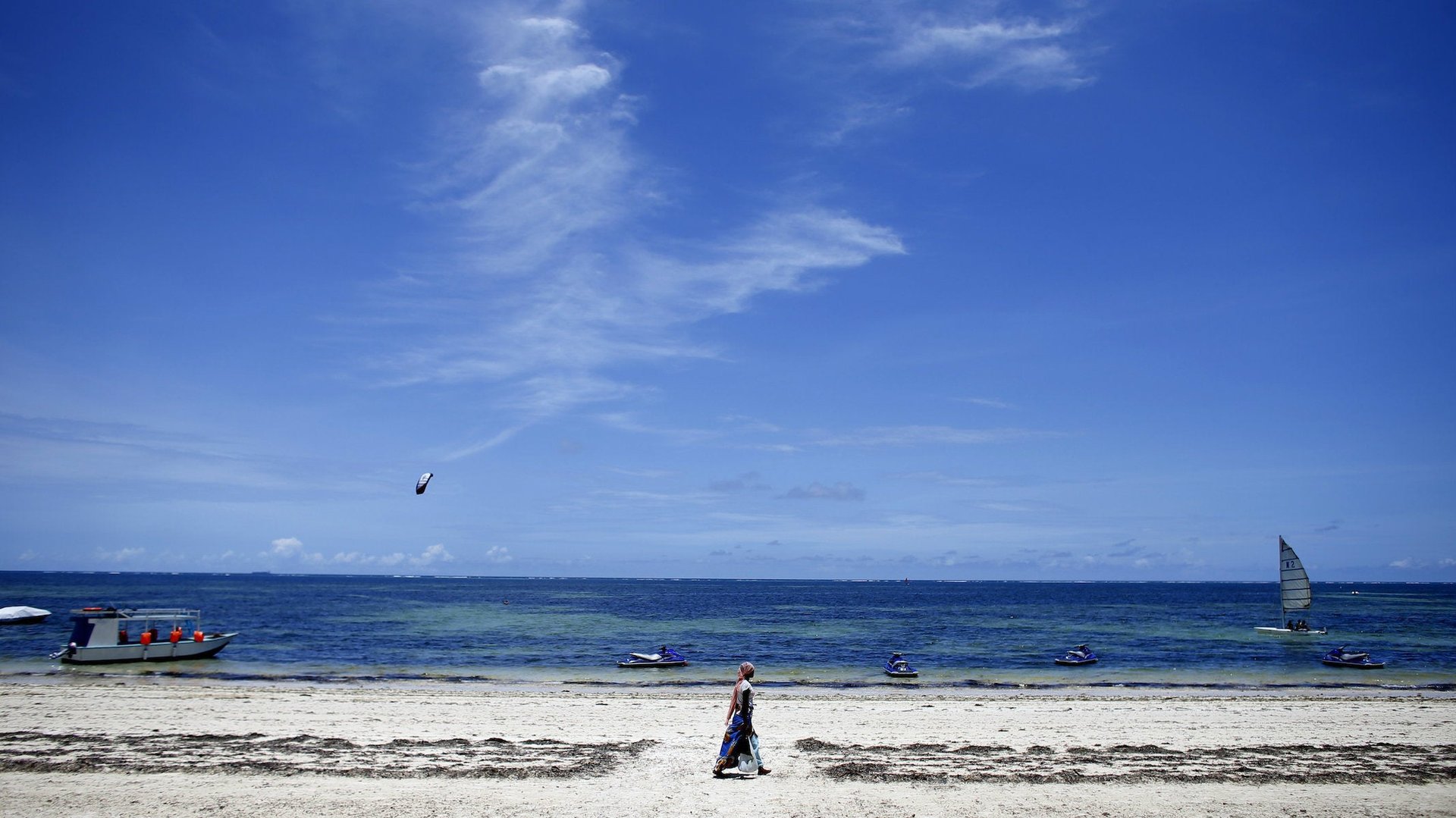More tourists are turning away from Kenya as election insecurity worries grow
Kenya’s tourism sector is facing another bleak year after four consecutive years of decline in earnings due to insecurity fears. Those fears, which are primarily caused by the Islamic militant group Al Shabaab, have now been exacerbated by new protests against the country’s electoral commission intensifying ahead of the 2017 general election.


Kenya’s tourism sector is facing another bleak year after four consecutive years of decline in earnings due to insecurity fears. Those fears, which are primarily caused by the Islamic militant group Al Shabaab, have now been exacerbated by new protests against the country’s electoral commission intensifying ahead of the 2017 general election.
Earnings from the sector, the second largest foreign exchange earner for the country after tea, dropped 3% to 84.6 billion Kenya shillings ($836 million) last year.
Nairobi and the north eastern part of the country have also borne a huge brunt of the Al Shabaab attacks in the past, leading to restrictive travel advisories by some key markets (the US, Britain, Germany and Australia). The sector has yet to recover even after the relaxing of such restrictions as the security situation in the country improved.
But, the sector’s woes are far from over. Kenya’s tourism minister Najib Balala, just like tour operators, is worried the ongoing political demonstrations in Kenya are scaring away visitors. Kenya’s opposition leaders have been staging protests against the Independent Electoral and Boundaries Commission (IEBC) demanding that its officials vacate office. The protests, in their fifth week, have turned violent on past occasions and have sent jitters among investors and tourists.
“Months of tourism recovery efforts will go down the drain if the IEBC protests continue,” Balala said at a briefing in Nairobi on Monday (June 6).
Dennis Gituma, director of Jumbo Trek Africa Safaris, a local travel agent, is already contending with cancellations of bookings by international tourists due to the demonstrations.
“International tourists have had to cancel or suspend their safari (travel plans) to Kenya opting for a more peaceful (destinations such as) Tanzania. The current political temperature makes them worried of their security,” he tells Quartz.
In 2015, the number of visitors from the UK, the largest tourist source market for Kenya dropped by 15.9% to 98,523. Arrivals from the US, the second largest tourist source market for the country, dropped by 10.5% to 84,759.
Even as arrivals from South Africa (up 17.6% to 30,476) and Nigeria (up 6% to 14,065) showed positive momentum due to aggressive marketing by Kenya’s tourism body in those countries, arrivals from other East African countries slumped.
Last year, Kenya commenced a multi-million dollar advertising campaign of its tourism sector on CNN to entice international visitors to its game parks and sandy beaches. But last July the government was threatened to pull the campaign after CNN described Kenya as a “hotbed of terror” in the run-up to president Obama’s visit.
This year, the country has set aside 1.6 billion Kenya shillings ($160 million) to ramp up marketing drives for the sector internationally.